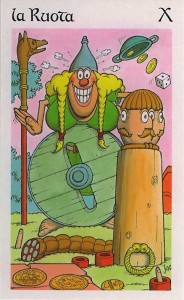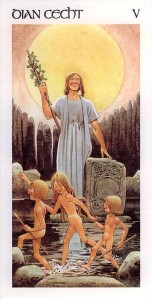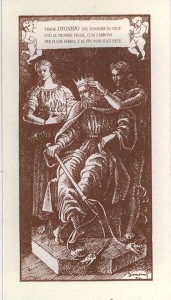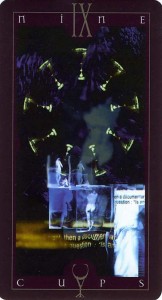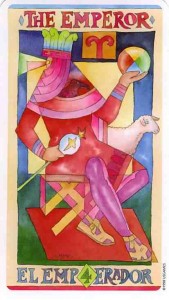 Created by Betty Lopez; Designed by Napo
Created by Betty Lopez; Designed by Napo
Interpretation: This Emperor looks at the past with eyes that emanate light. He sees the structure on which the present is built: custom, history, and religion. His thoughts and concept of life are geometric and static. He is a paternal, chivalrous man whose actions have great impact on his people. Tho very respectful of tradition and customs, he is not necessarily open-minded and therefore often seems dominant and prejudiced.
I generally dislike the Emperor. He reflects rules and regulations. Although I enjoy a harmonious society, I sometimes have issues with structure and often question authority. Rules and regulations are necessary, but many rules and regulations are not necessarily the best. Nonetheless, there must be some basic social structure to prevent anarchy and chaos.
Tell me something about my trip to New York.
I am (I think) going to NY City for a weekend in February to take a yoga workshop at Baby Om Yoga to learn to do yoga with my up-coming baby and learn to teach others the same. There are no such classes in the area. The Emperor reminds me that the teachers I am going to learn from have a history of studying Iyengar yoga, whose structure and precision I adore. But workshops always cost a lot of money and I highly dislike driving. This results in cost/ benefit event-anxiety on my part. Over and over I ask myself:
Is it worth it? —Only time will tell.
Can I survive without it? —Of course!
Will I make use of my new knowledge? —Yes, at least for myself. But if it is only for myself, I could just learn and practice and innovate from their book; I do not need a teacher training. I do have a 500-hour certification with Ana Forrest and I have taught in the past, but I am terrible at marketing my vast store of abilities.
Could I be doing something better with my time? —Perhaps, but at the rate I’m accomplishing things, I probably won’t.
The Emperor has a strong desire to see ideas manifested on the physical plane in the form of material gain or accomplishment. He says to me— You know, you won’t have an opportunity to take such a workshop after your baby is born. You cannot learn structure in a void: you need to learn structure from others to provide structure for yourself. You have no experience with babies. Look at the past: learn from others.
I have a strong desire to feel as tho I have not wasted my time chasing some intangible golden goose. I say to the Emperor— Keep coming back to remind me you are here. I will keep pushing you away and desiring your return.




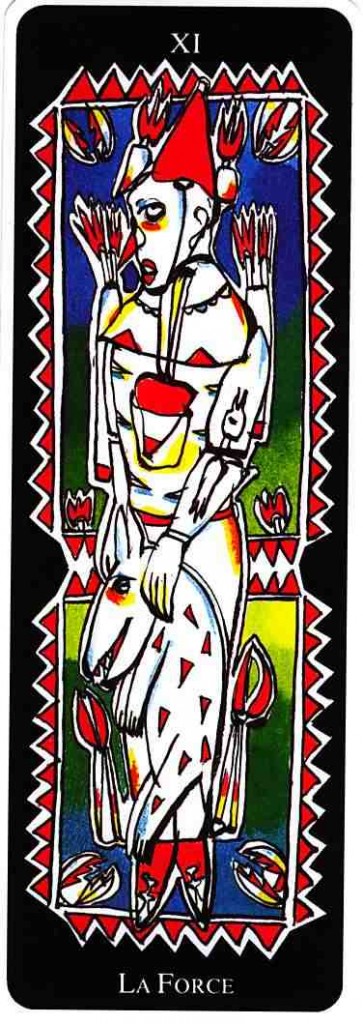
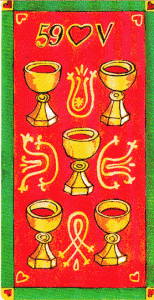
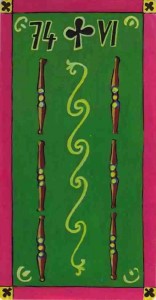
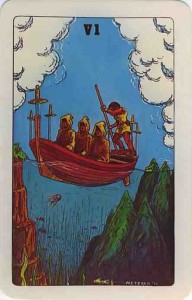
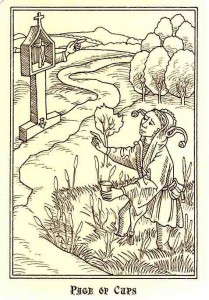
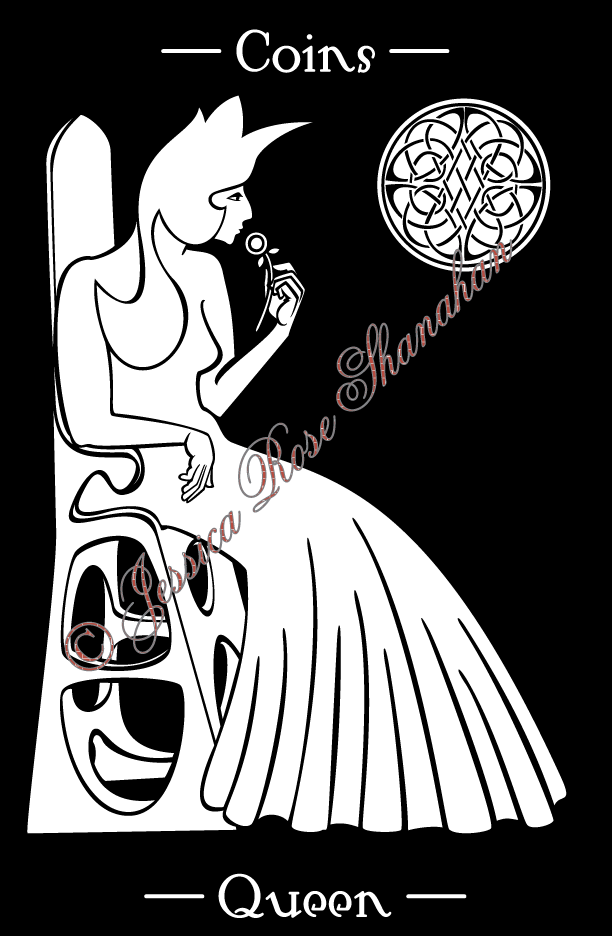 Artist: Jessica Rose Shanahan
Artist: Jessica Rose Shanahan